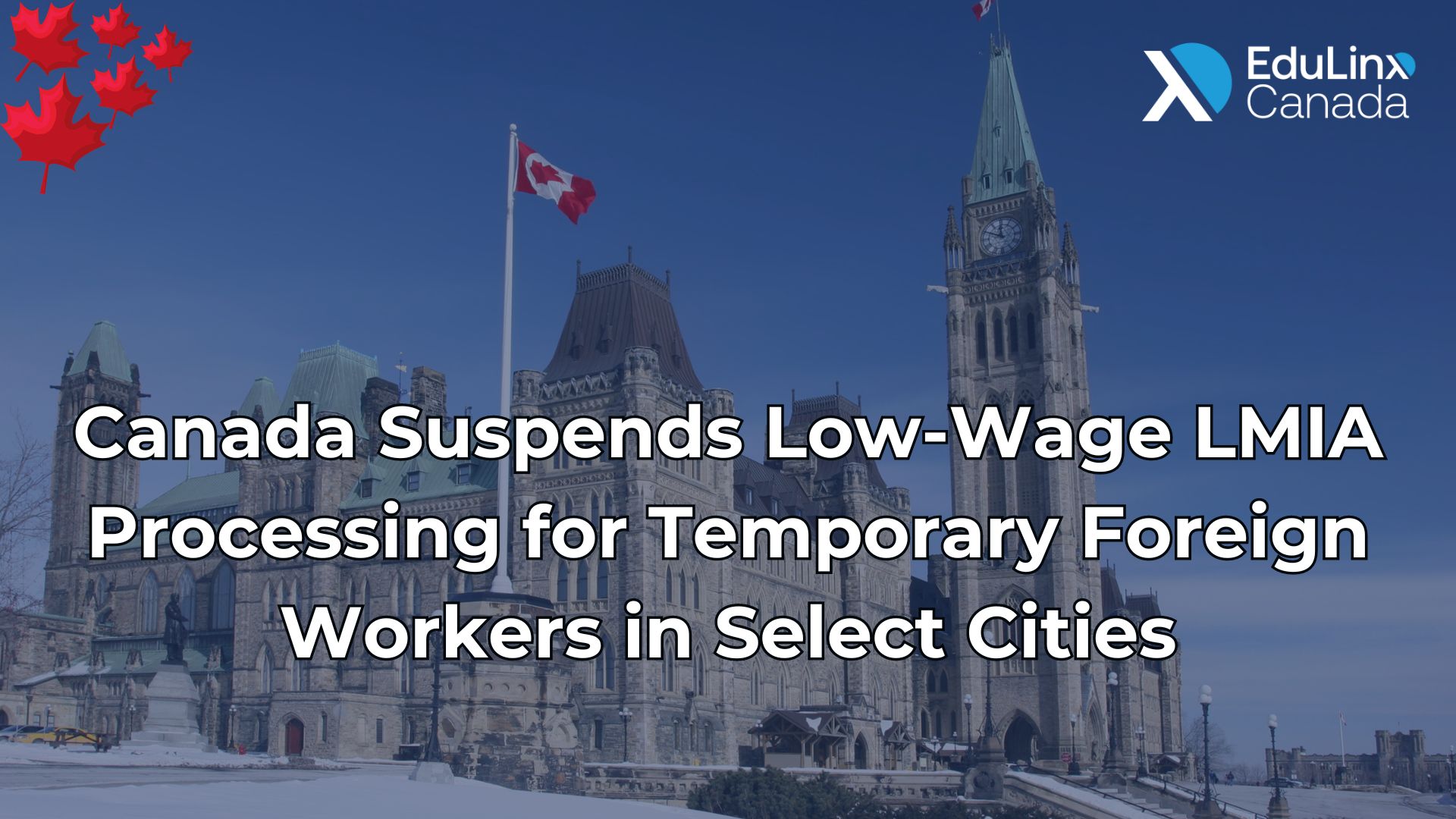Starting on September 26, the Canadian government will stop processing Labour Market Impact Assessments (LMIAs) for the Low-Wage stream of the Temporary Foreign Worker Program (TFWP) in certain census metropolitan areas (CMAs).
Employment and Social Development Canada (ESDC) will not process LMIAs in CMAs where the unemployment rate is 6% or higher. However, specific details on which cities will be affected have not yet been released.
The department has stated that there will be exceptions for seasonal and non-seasonal jobs in sectors crucial to food security (such as primary agriculture, food processing, and fish processing), as well as for roles in construction and healthcare.
Additionally, employers will be restricted from hiring more than 10% of their workforce through the TFWP, and the maximum employment period for workers under the Low-Wage stream will be shortened from two years to one.
Randy Boissonnault, the Minister of Employment, Workforce Development, and Official Languages, highlighted that Canada has been overly dependent on the program.
“The Temporary Foreign Worker Program was created to address labour shortages when no qualified Canadians were available for the roles. Currently, we know there are more Canadians who are qualified to fill these vacancies. The changes we are implementing today will prioritize Canadian workers and ensure the program is effectively meeting the needs of our economy.”
According to the Labour Force Survey, Canada’s unemployment rate has been gradually increasing since April 2023, reaching 6.4% as of June 2024, which amounts to 1.4 million unemployed individuals.
The Minister also emphasized that the new restrictions aim to curb misuse and fraud within the TFWP. He noted that Canadian employers have a responsibility to retrain and upskill their current employees to meet future workplace demands.
In the next 90 days, ESDC will review the High-Wage stream of the TFWP, which could lead to changes in existing LMIA applications, sectoral exceptions, or the refusal to process other LMIA applications, including those in rural areas.
The TFWP is a widely used route for newcomers seeking work experience in Canada. Employers who wish to use the program must submit an LMIA to ESDC to assess whether hiring a foreign worker will have a positive, neutral, or negative impact on the Canadian workforce and economy.
The TFWP has two streams: Low-Wage and High-Wage, with Low-Wage positions being those that pay less than the median hourly wage in the province.
Recent changes to the temporary worker levels in Montreal
On August 20th, Quebec Premier François Legault announced new restrictions on temporary foreign workers, specifically targeting the “administrative region” of Montreal.
Starting September 3rd, both the Quebec provincial government and the federal Canadian government will halt the processing of LMIA applications for certain occupations in Montreal within the Low-Wage stream of the TFWP, which includes positions with hourly wages below the Quebec median.
This policy aligns with the recent announcement by Employment and Social Development Canada (ESDC). However, exemptions will be made for workers who meet specific occupation, location, or wage criteria, as well as for those who submit an LMIA before September 3rd, 2024. The suspension is set to last for six months.
Part of a wider plan
These changes to the TFWP are occurring as the Canadian government increasingly focuses on the program and the overall levels of temporary residents in the country, including those on work or study permits and visitors with visas or Electronic Travel Authorizations (eTA).
Recently, both Employment Minister Randy Boissonnault and Immigration Minister Marc Miller have publicly criticized employers within the TFWP for exploiting temporary foreign workers and bypassing Canadian workers in favor of cheaper labor.
In their first joint address on this issue in March, Minister Miller announced the historic addition of temporary resident levels to the annual Immigration Levels Plan, aimed at better managing the pressures this population places on Canadian social services and infrastructure. In line with this goal, Canada also introduced a cap on study permits for international students, which will remain in effect until 2026.




